Trump team weighs options, including airstrikes, to stop Iran’s nuclear program
Advisers to the US President-elect consider military action amid concern that economic pressure isn’t enough to contain Tehran.
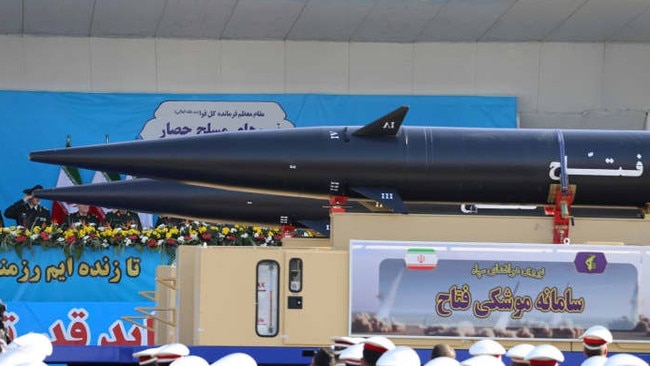
President-elect Donald Trump is weighing options for stopping Iran from being able to build a nuclear weapon, including the possibility of preventive airstrikes, a move that would break with the longstanding policy of containing Tehran with diplomacy and sanctions.
The military-strike option against nuclear facilities is now under more serious review by some members of his transition team, who are weighing the fall of the regime of President Bashar al-Assad, Tehran’s ally, in Syria, the future of US troops in the region, and Israel’s decimation of regime proxy militias Hezbollah and Hamas.
Iran’s weakened regional position and recent revelations of Tehran’s burgeoning nuclear work have turbocharged sensitive internal discussions, transition officials said. All deliberation on the issue, however, remains in the early stages.
Trump has told Israeli Prime Minister Benjamin Netanyahu in recent calls that he is concerned about an Iranian nuclear breakout on his watch, two people familiar with their conversations said, signalling he is looking for proposals to prevent that outcome. The president-elect wants plans that stop short of igniting a new war, particularly one that could pull in the US military, as strikes on Tehran’s nuclear facilities have the potential put the US and Iran on a collision course.
Iran has enough highly enriched uranium alone to build four nuclear bombs, making it the only non-nuclear-weapon country to be producing 60 per cent near-weapons-grade fissile material. It would take just a few days to convert that stockpile into weapons-grade nuclear fuel.
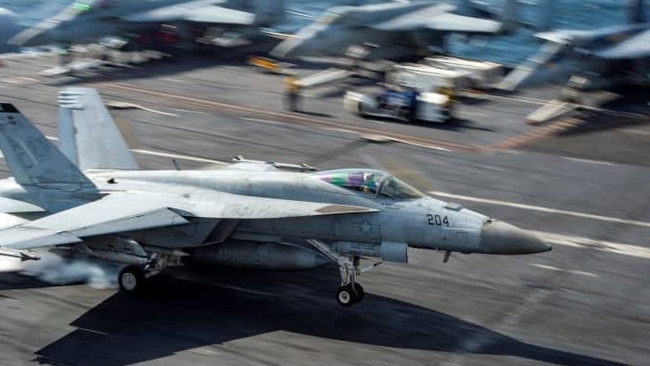
US officials have previously said it could take Iran several months to field a nuclear weapon.
The president-elect’s transition team is devising what it calls a “maximum pressure 2.0” strategy against the regime, people familiar with the planning said, the sequel to his first-term approach centring on strict economic sanctions. This time, the president-elect and his aides are fleshing out military steps that could be central to its anti-Tehran campaign, though still paired with tighter financial penalties.
Two broad options have come up in discussions, including in some talks that have taken place with Trump, four people familiar with the planning said.
One path, described by two people familiar with the plan, involves augmenting military pressure by sending more US forces, warplanes, and ships to the Middle East. The US could also sell advanced weapons to Israel, such as bunker-busting bombs, strengthening its offensive firepower to take Iranian nuclear facilities offline.
The threat of military force, especially if paired with US-imposed sanctions that manage to cripple Iran’s economy, may convince Tehran that there is no choice but to diplomatically resolve the crisis.
The alternative path is to seek to use the threat of military force, especially if paired with US-imposed sanctions, to drive Tehran into accepting a diplomatic resolution. That is the strategy Trump employed with North Korea in his first term, although the diplomacy eventually faltered.

It isn’t clear which option Trump, who has talked about avoiding a third World War and brokering deals with Tehran, would choose. While Trump has insisted that he seeks to avoid massive escalation in the Middle East, he told Time in an interview published Thursday that there is a chance the US could go to war with Iran, partly because Tehran plotted to assassinate him.
“Anything can happen,” he said. “It’s a very volatile situation.” Some incoming administration officials have yet to fully weigh in on the issue, and Iran-related proposals could shift as cabinet officials get into place, classified information becomes available, and discussions are held with regional allies like Israel. Crucially, Trump rarely delves deep into details about foreign-policy matters until he is presented with finalised options and a decision needs to be made, former Trump administration officials say.
Iran’s United Nations mission didn’t respond to requests for comment. Leaders in Tehran have long denied that they seek to acquire a nuclear weapon.
The Israeli government also didn’t respond to requests for comment about whether it would pre-emptively attack Iran during the Trump administration. But in November, after holding three calls with Trump, Netanyahu said he and Trump “see eye to eye on the Iranian threat in all its components, and the danger posed by it.”
Trump weighed the idea of pre-emptive strikes on Iran’s nuclear program toward the end of his first term, former officials said, shortly after international inspectors revealed Iran’s stockpile of nuclear material had grown. But Trump, after he left office, has since disputed he ever considered military action seriously, claiming senior defence aides developed war plans and pushed him to authorise a strike.
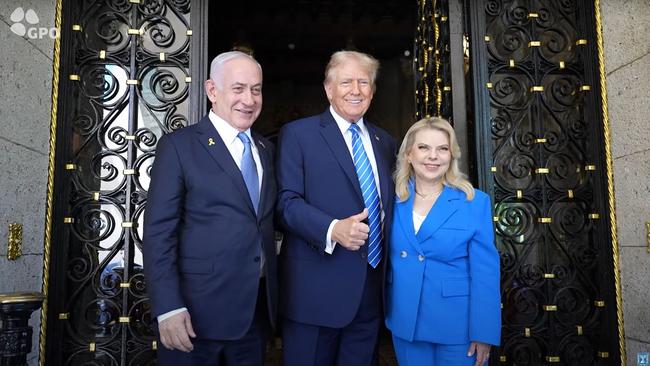
Trump aides and confidants supporting military options for his second term said the main idea would be to support Israeli strikes on Iranian nuclear facilities like Natanz, Fordow and Isfahan, and even potentially have the US participate in a joint operation. Many current and former Israeli officials say there are huge uncertainties of how successful Israel would be in mounting a solo attack on Iran’s nuclear facilities, some of which are buried deep underground.
Still, some of Trump’s allies insist his first months back in office present him with the rare opportunity to counter Iran’s nuclear buildup while the regime is in a weakened position.
“If you were going to actually do something to neutralise the nuclear-weapons program, this would be it,” said Mark Dubowitz, chief executive of the Foundation for Defense of Democracies, who speaks regularly with top Trump aides, including some set to enter the new administration.
Should Trump reach for a serious military option, he would be breaking with recent US policy, and that of his first presidency.
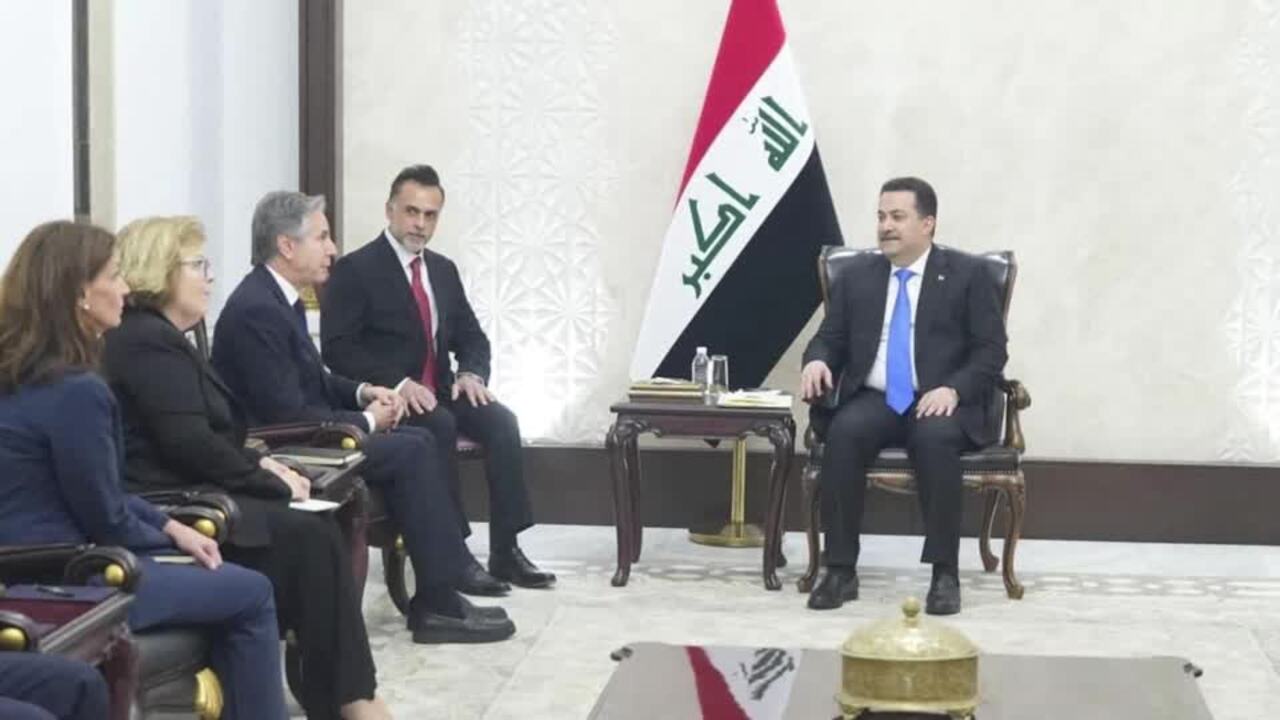
The Obama administration aimed to settle Iran’s nuclear rise with a multinational deal, culminating in 2015’s Joint Comprehensive Plan of Action, which temporarily constrained Tehran’s nuclear work. Trump withdrew the US from that pact and mounted economic pressure on Iran in hopes it would abandon the nuclear program. President Biden sought to revive the 2015 agreement, but Iran ended up walking away, leading his administration to keep many of the Trump-era sanctions on the Islamic Republic.
Israel, meanwhile, has for years considered attacking Iran’s nuclear facilities but hasn’t done so, in part, because of US caution against it. The Obama administration in 2012 warned Netanyahu off launching attacks as Iran built its nuclear program before the 2015 nuclear deal. The Biden administration has consistently said it seeks a diplomatic solution to Iran’s nuclear advances.
Discussions of an Israeli strike on Iran’s nuclear facilities would be different this time around.
“There is strong support for Israel to take military action as they deem in their interests,” said Gabriel Noronha, who worked on Iran policy at the State Department during the first Trump administration. “Iran does not have much room to go before they hit [Israel’s] red lines, and they still seem intent on escalating further.” Officials on Trump’s transition say they intend to enforce current sanctions and impose new ones, including redesignating the Tehran-backed Houthis in Yemen as a foreign terrorist organisation and prohibiting countries that buy Iranian oil from purchasing American energy.
But more needs to be done than increased economic and financial pressure because Iran “is actively trying to kill President Trump,” a person on the transition said. “That certainly influences everybody’s thinking when it comes to what the relationship is out the gate.” Iran has given the US assurances it wouldn’t assassinate Trump in retaliation for his 2020 order to kill top Iranian paramilitary leader Qassem Soleimani. The killing of Soleimani was the most aggressive military action by the US against Iran in years.
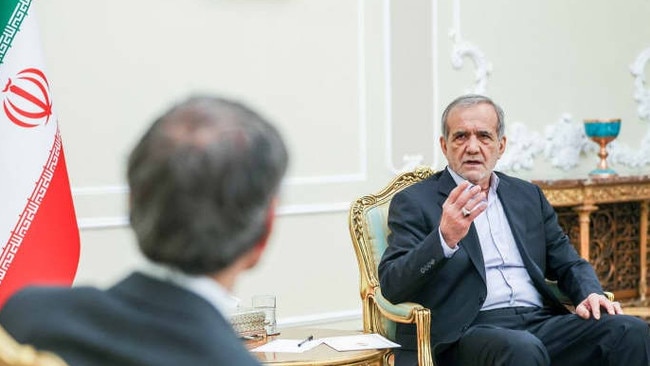
The incoming administration insists Tehran’s network of proxies can’t be fully countered unless Iran is starved of economic and military resources. “It’s the head of the octopus,” the transition official said. “We’re not going to solve all these issues where they are. We’re going to solve them in how we deal with Tehran.” Iran’s new president, Masoud Pezeshkian, appears to be appealing to Trump’s appetite for high-profile agreements. Pezeshkian “is ready to manage tensions with the United States” and “hopes for equal-footed negotiations regarding the nuclear deal – and potentially more,” Javad Zarif, Iran’s vice president for strategic affairs, wrote in Foreign Affairs last week.
But the diplomatic approach has its pitfalls. Iranian officials say they won’t negotiate with the US under pressure, and they told European officials in Geneva last month that they wouldn’t take any unilateral steps to clip back their nuclear program.
Tehran already has enough fissile material to produce more than 12 nuclear bombs, according to a US intelligence estimate released last week. Although Iran isn’t currently building a bomb, the report said, it is better prepared to do so thanks to research it has carried out in recent months.
Iranian officials have long made it clear their reaction to a strike would be to kick out UN inspectors and leave the Non-Proliferation Treaty, which commits Tehran to not develop nuclear weapons.
The only country that has ever done that is North Korea, which went on to covertly start producing nuclear weapons – a path Tehran has hinted it could take.
Dow Jones Newswires

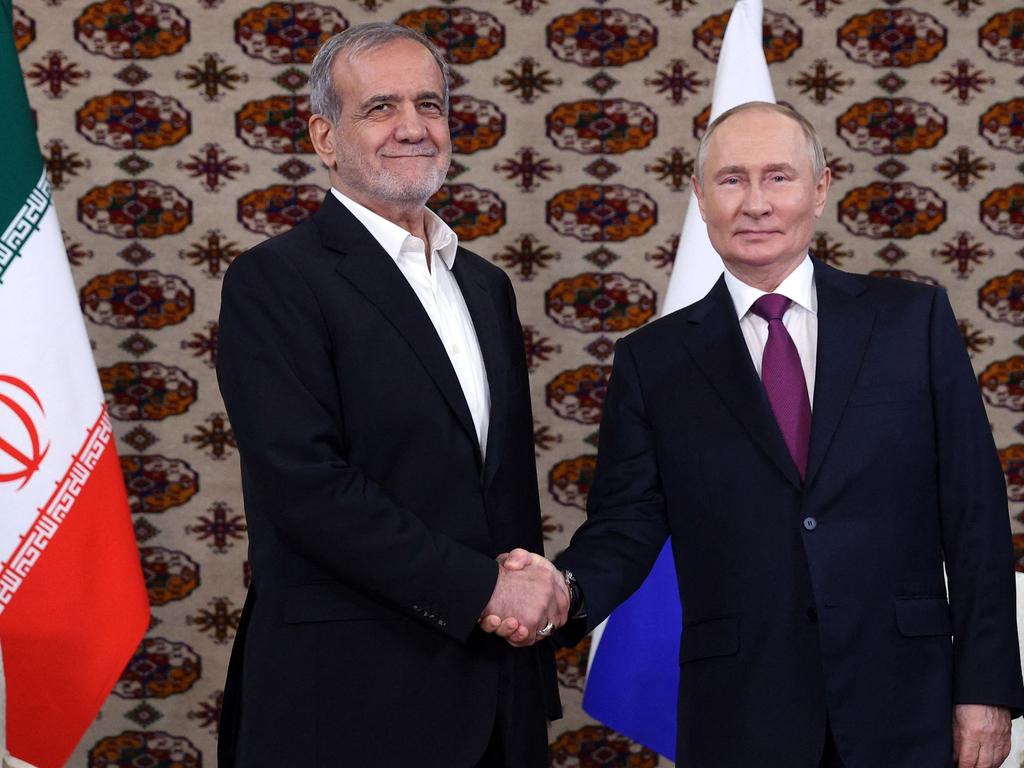

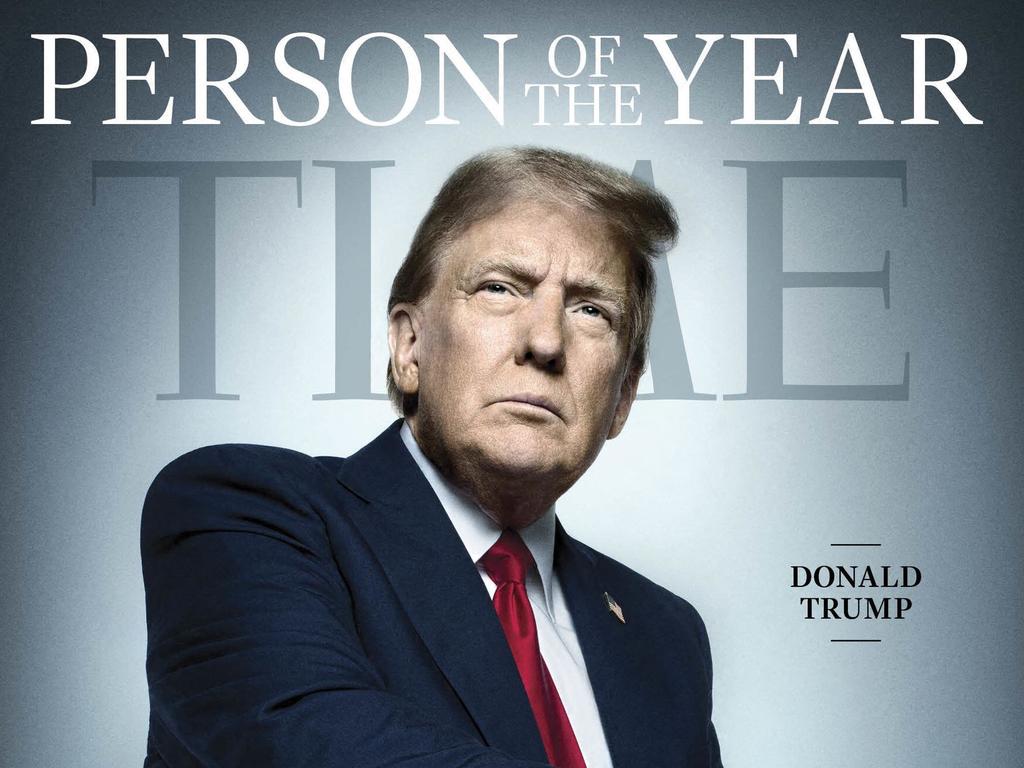


To join the conversation, please log in. Don't have an account? Register
Join the conversation, you are commenting as Logout